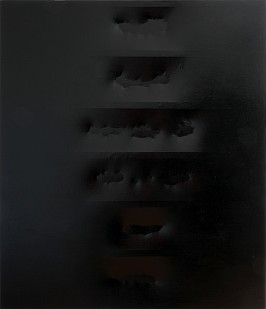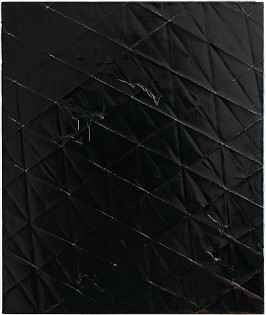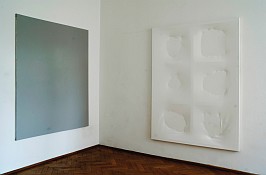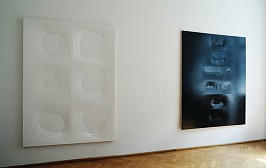Tomek Baran
born in 1985 in Stalowa Wola
Lives and works in Cracow
Education:
2005-2010 Academy of Fine Arts in Cracow, diploma in painting, prof. Andrzej Bednarczyk’s studio
Individual exhibitions:
2010 “Untitled”, Delikatesy Gallery, Cracow, Poland
2009 “Mr Baran Paints a Mural, a Private Flat Intervention”, Cracow, Poland
2009 “Exhibition I, Abstraction Revaluation Action”, F.A.I.T. Gallery, Cracow, Poland
Collective exhibitions:
2010 Best diplomas of Academies of Fine Arts 2010, Gdańsk, Poland
2010 “Chopin in Town, City Space Activities”, Cracow Festival Office, Cracow, Poland
2009 “Jeune Création Européenne”, Montrouge, France
2009 “306, Floriańska 22”, Cracow, Poland
2008 “Halfway Point, Open Studio”, Cracow, Poland
Residences/Grants:
2010 Residence in Montrouge, France
Since the third year of his art course Tomasz Baran has been consistent in his abstract painting projects. In fact, today his passion for pursuing own intuitions, disregarding fashions and curatorial choices, is even greater than back when he was a student of the Academy of Fine Arts. Actually, intuition is a key term in his case, even though it does not express everything. His activity is like an eruption. His sequences of forms and composition motifs originate from brush strokes which follow one another. It does not mean, however, that what we see here is the somewhat anachronistic formula of action painting. Tomasz Baran’s painting gesture is principally controlled, and occasionally even disciplined, bordering on geometrical abstraction. As a result, what emerges is not an artificial blend of unrestrained gesture and the rigour of a ruler or masking tape. The gesture present in Baran’s abstract works has something natural in it. In a way, the gesture breathes, respires, and the particular paintings – despite offering familiar forms – do not re-direct our attention to evident patterns. The young artist’s inventiveness is incredible. Apart from the large-sized canvases, he works on various textures and weights of paper, layer-primed boards, as well as objects interacting – or rather existing in relation to – sources of artificial light. Incidentally, two such objects are presented in the attached documentation. In my view, they complement the painting works, which in this way gain an extra context – reflection on light and luminosity. I consider Tomasz Baran’s artistic potential and its effects unique among young painters’ output, therefore I have great satisfaction in recommending his work.
Witold Stelmachniewicz



